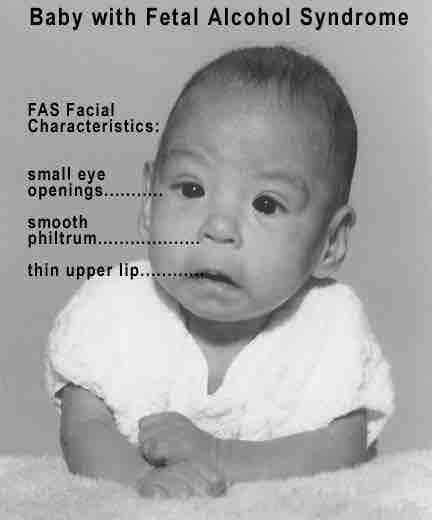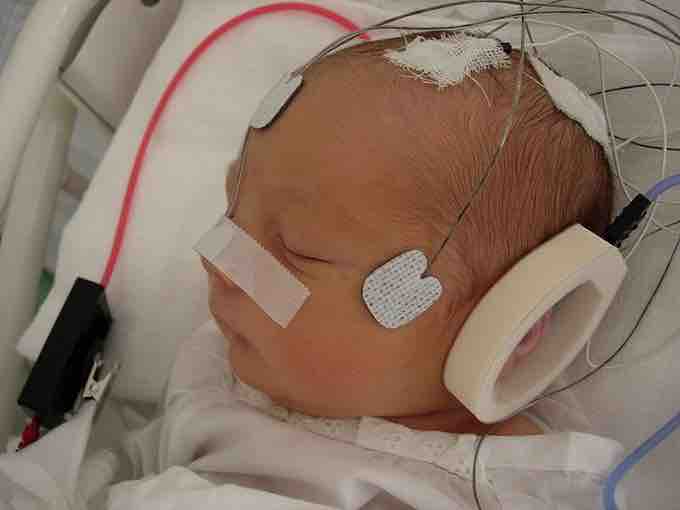Prenatal development is the process that occurs during the 40 weeks prior to the birth of a child. During each prenatal stage, environmental factors affect the development of the fetus. The developing fetus is completely dependent on the mother for life, and it is important that the mother receives prenatal care, which is medical care during pregnancy that monitors the health of both the mother and the fetus. According to the National Institutes of Health ([NIH], 2013), routine prenatal care can reduce the risk of complications to the mother and fetus during pregnancy.
When the zygote attaches to the wall of the uterus, the placenta is formed. The placenta provides nourishment and oxygen to the fetus. Most everything the mother ingests, including food, liquid, and even medication, travels through the placenta to the fetus—hence the common phrase that a mother “eats for two.” Anything the mother is exposed to in the environment affects the fetus; if the mother is exposed to something harmful, the child can show life-long effects.
Teratogens
A teratogen is any environmental substance or agent—biological, chemical, or physical—that can have a detrimental effect on a developing fetus. Exposure to teratogens during the prenatal stage can significantly raise the risk of birth defects. Several factors influence the amount of damage a teratogen can have, including dose or level of exposure, heredity, age of the teratogen, and any other negative influences (for example, several teratogens or a teratogen combined with poor health). There are several known teratogens that expectant mothers are advised to avoid during pregnancy, including alcohol, prescription and/or illegal drugs, and tobacco.
Alcohol
Alcohol and most drugs cross the placenta and affect the fetus. Alcohol use during pregnancy has been found to be the leading preventable cause of mental disabilities in children in the United States (Maier & West, 2001). Excessive maternal drinking while pregnant can cause fetal alcohol spectrum disorders (FASD) with life-long consequences for the child, ranging in severity from minor to major. It is unknown how much alcohol is necessary to cause damage, and so doctors typically recommend that alcohol should be completely avoided during pregnancy. Physically, children with FASD may have a small head size and abnormal facial features. Cognitively, these children may have poor judgment, poor impulse control, higher rates of ADHD and learning issues, and lower IQ scores. These developmental problems and delays persist into adulthood (Streissguth et al., 2004). Based on studies conducted on animals, it also has been suggested that a mother’s alcohol consumption during pregnancy may predispose her child to like alcohol (Youngentob et al., 2007).

Fetal alcohol spectrum disorder
The symptoms of FASD include slow physical growth, abnormal facial features (such as a smooth philtrum, or no dent in the upper lip), and brain injury.
Each organ of the fetus develops during a specific period in the pregnancy, called the critical or sensitive period. Research into FASD has demonstrated that the time during which a developing fetus is exposed to alcohol can dramatically affect the appearance of facial characteristics associated with FASD. Specifically, this research suggests that alcohol exposure that is limited to day 19 or 20 of gestation can lead to significant facial abnormalities in the offspring of primates (Ashley, Magnuson, Omnell, & Clarren, 1999). Given regions of the brain also show sensitive periods during which they are most susceptible to the teratogenic effects of alcohol (Tran & Kelly, 2003).
Prescription and/or Illegal Drugs
Use of any type of drug—whether illegal, prescription, or over-the-counter—can be dangerous during pregnancy. Illegal drugs such as heroine, cocaine, and methamphetamine can cause a myriad of problems for the developing fetus: babies can be born addicted to certain drugs and are also more likely to be born prematurely, have low birth weight, and experience other physical defects. Many end up with attention and behavioral problems as well.
Prescription drugs taken during pregnancy such as streptomycin, tetracycline, some antidepressants, progestin, synthetic estrogen, Accutane, thalidomide, and diethylstilbestrol (known as DES)—as well as over-the-counter drugs such as diet pills—can also result in teratogenic outcomes for the developing fetus. Thalidomide causes bodily deformities as well as damage to internal organs. DES-exposed fetuses have been shown to have higher rates of cancer and infertility as adults. Additionally, high doses of aspirin are known to lead to maternal and fetal bleeding, although low-dose aspirin is usually not harmful. The classification of a drug (as A, B, C, D, or X) allows a mother to make determinations about using drugs during pregnancy: for example, class A drugs are deemed always safe, whereas class X drugs have proven to be damaging to the fetus.
Smoking
Smoking tobacco is also considered a teratogen because nicotine travels through the placenta to the fetus. When the mother smokes, the developing baby experiences a reduction in blood oxygen levels. According to the Centers for Disease Control and Prevention (2013), smoking while pregnant can result in premature birth, low-birth-weight infants, stillbirth, and sudden infant death syndrome (SIDS)—the sudden and unexplained death of a child less than one year of age. Other issues that can be caused by prenatal exposure to smoking are inattentiveness, muscle tension, and colic (a form of pain which starts and stops abruptly and occurs due to muscular contractions in the body). The more a mother smokes or is exposed to second-hand smoke, the greater the risk; however, quitting (even after smoking during pregnancy) greatly reduces the risks of these problems.
Other Teratogens
Other teratogens that affect prenatal development include radiation, pollution, and infectious disease. Radiation increases the risk of childhood cancer, as well as emotional and behavioral disorders; because of this, it is recommended that pregnant women avoid x-rays unless absolutely necessary. Pollution, such as exposure to mercury or PCBs, can cause physical deformities, abnormal speech, and difficulty with coordination. Maternal infections such as viruses or parasites can also cause brain damage to the fetus, or even death.

Baby in the NICU (neonatal intensive care unit)
Exposure to teratogens during pregnancy can cause many problems for a developing fetus and newborn baby.
Maternal Stress and Depression
Any form of prenatal stress felt by the mother can have negative effects on various aspects of fetal development, and can cause harm to both mother and child. When a mother is under stress, physiological changes occur in the body that could harm the developing fetus. Additionally, a stressed mother is more likely to engage in behaviors that could negatively affect the fetus, such as smoking, drug use, and alcohol abuse. Prenatal depression is often caused by the stress and worry that pregnancy can bring, only at a more severe level. Other factors that can put a person at risk for prenatal depression include unplanned pregnancy, difficulty becoming pregnant, history of abuse, and economic or family problems.
The use of antidepressants in pregnancy, mentioned above, has been associated with a variety of risks for the fetus with varying degrees of proof of causation. While some studies clearly show the adverse outcomes of prenatal antidepressant exposure, others are less clear—and complications arise because depression itself is independently associated with negative pregnancy outcomes. Determining the extent to which adverse outcomes are caused by antidepressant use or by depression—or a combination of both—is difficult to measure; it is also important to factor in the negative consequences of a mother going off prescription antidepressants during pregnancy, which may adversely effect her health in other ways.